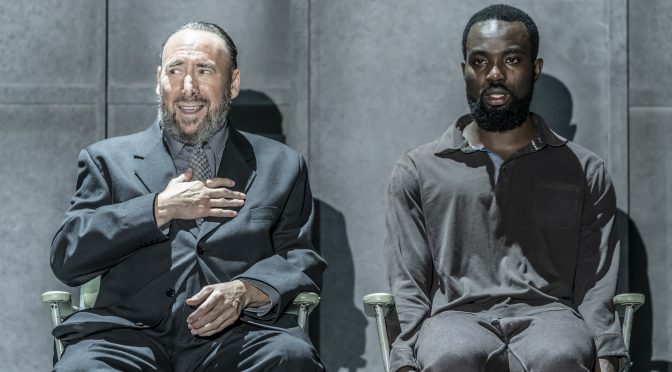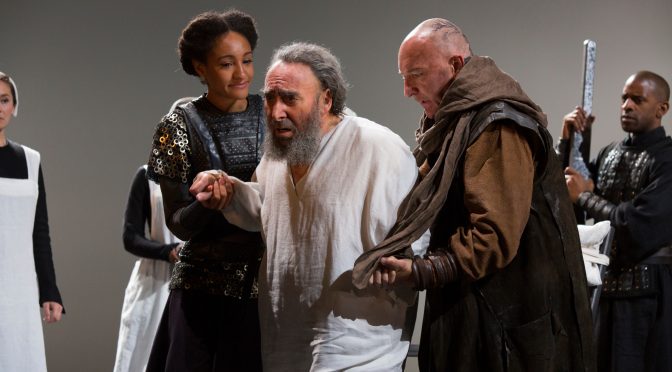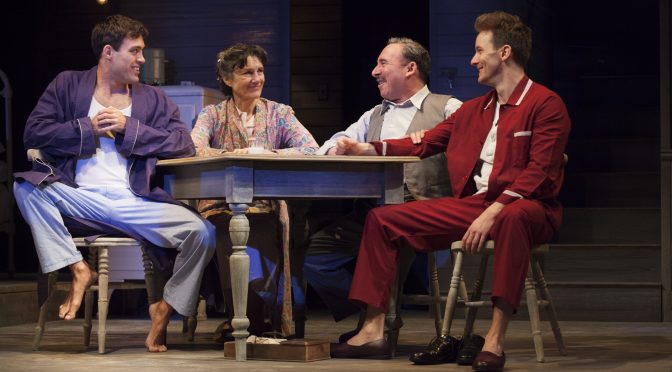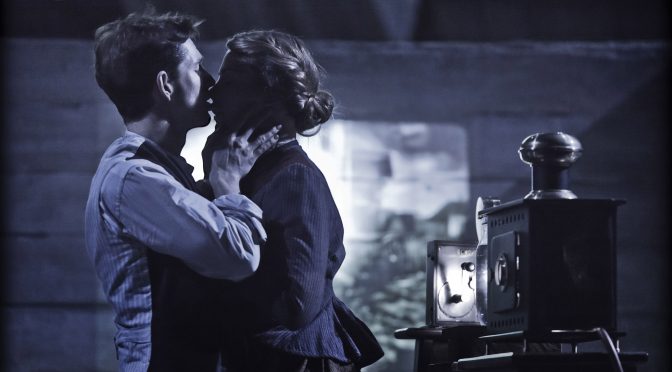Director Jamie Lloyd has an unerring ability to surround his projects with excitement. His latest scheme is to present short works by Harold Pinter in a six-month-long series of carefully curated and stylishly packaged shows (they really should sell a T-shirt). The project boasts an array of stars – young and old – which indicates that everyone wants to work with Lloyd and offers the chance to see rarely performed works.
The season – and Pinter 1 – get off to a bang courtesy of confetti cannons and Press Conference, which stars a commanding Jonjo O’Neill as a sinister politician. It sets the scene for a first half of plays that show a variety of dystopias. Sometimes the shorts come across as dated, too simplistic and full of conspiracy. Or should we see the paranoia as prescient? A Donald Trump impersonation in The Pres and an Officer, a newly discovered satirical skit, suggests Lloyd does.
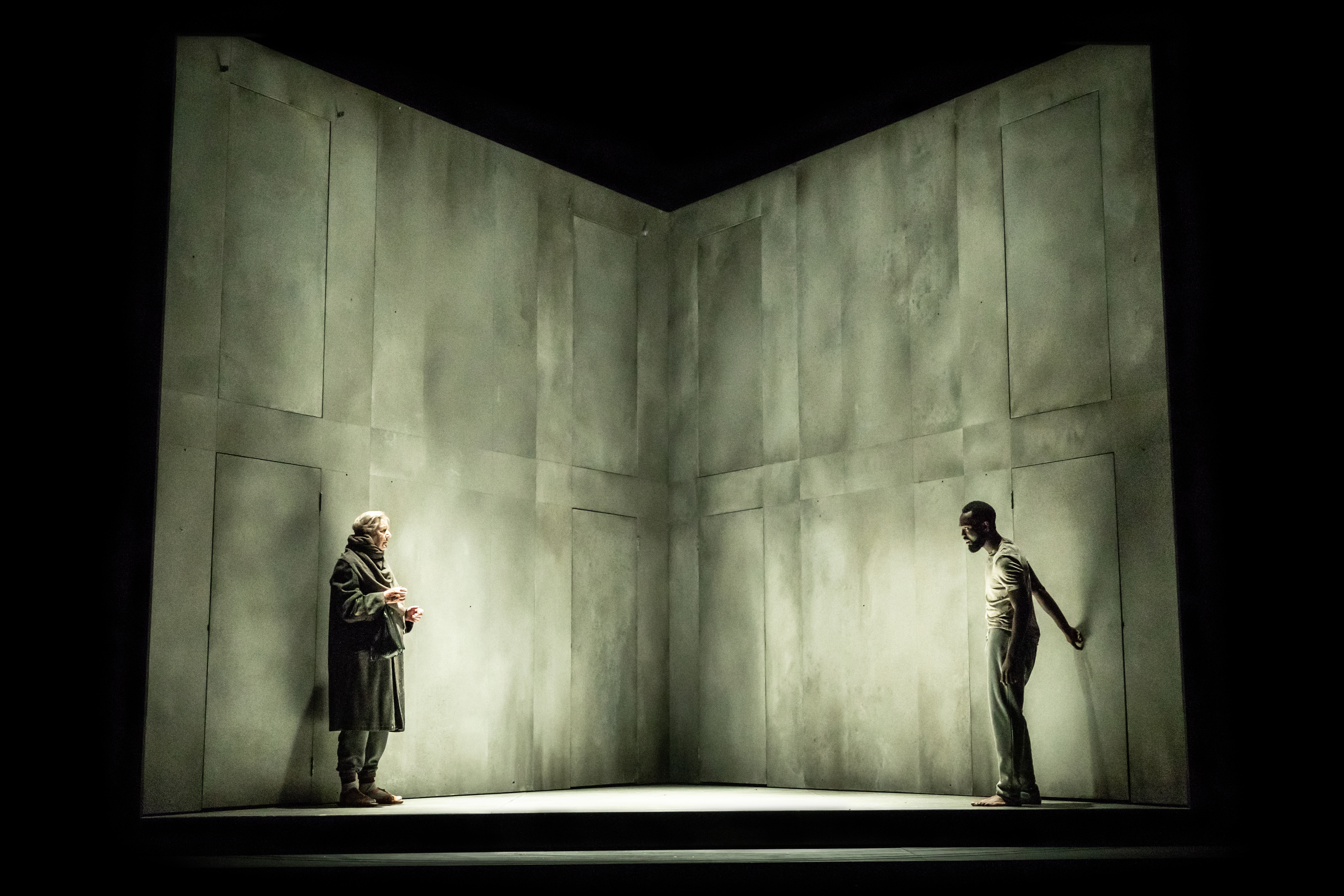
The way Pinter encapsulates the most basic fears surrounding the breakdown of society makes them raw and moving. Mountain Language reduced me to tears, with Maggie Steed as an elderly mother confronting her tortured son and forbidden to speak to him. And the tension Pinter can create becomes almost unbearable with One for the Road, which stars Antony Sher as a truly chilling interrogator, alongside Paapa Essiedu and Kate O’Flynn as his victims. The paranoia moves into a domestic setting for the evening’s finale, Ashes to Ashes, which sees a couple recounting an affair and an atrocity, both products of a deranged mind. It’s a too puzzling piece, held together by the direction of Lia Williams and passionate performances from O’Flynn and Essiedu.
Pinter 2 is a double bill of plays that look at infidelity, both from the 1960. First up is The Lover, where a squeaky clean couple discuss their affairs over breakfast and perform a bizarre role play. Surely this once appeared more challenging than it does today, and the point seems overplayed – even at just under an hour, the play drags. The boredom isn’t Lloyd’s fault – his direction is snappy and the whole show stylish thanks to the saturated colours of Soutra Gilmour’s designs. But while the piece is a comedy, the absurd is emphasised to a fault. Hayley Squires and John Macmillan perform well, but their characters are flattened, reduced to puppets. In fact, their shadows catch the eye more than they do (Elliot Griggs’ lighting design is superb).

This second evening improves a little with The Collection, where Squires and Macmillan benefit from meatier, if shorter, roles taking on another suspected affair and a confrontation between the husband and the man his wife says seduced her. Russell Tovey plays a wide boy who taunts the cuckolded Macmillan while his flatmate, David Suchet, looks on. Lloyd employs a broad brush again, and the cast clearly has fun, but a degree of tension is retained. The older man and his younger counterpart, from the slums it is said, make for a disconcerting mix of sex, class and violence that’s the real deal.
Until 20 October 2018
Photos by Marc Brenner

